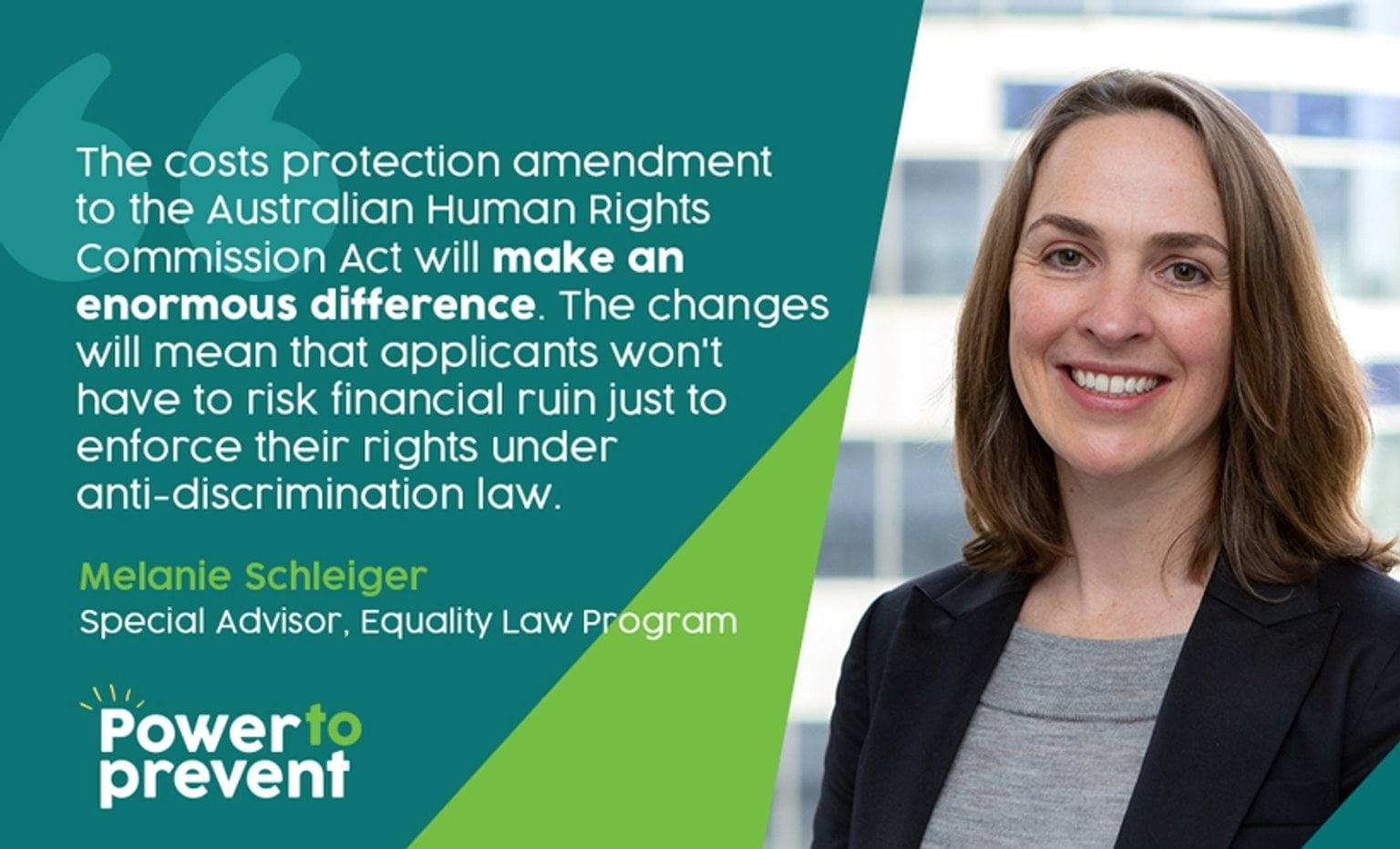- Published:
- Wednesday 25 September 2024 at 10:16 am

It will be easier for victim-survivors of workplace sexual harassment to bring proceedings to court, with new costs protection to become law.
The Australian Human Rights Commission Amendment (Costs Protection) Bill 2023 passed parliament on 19 September 2024. It will implement the final outstanding recommendation from the landmark Respect@Work report.
Victoria Legal Aid Special Advisor Melanie Schleiger says the costs protection amendment will make an enormous difference.
‘The changes will mean that applicants won’t have to risk financial ruin just to enforce their rights under anti-discrimination law.’
Costs protection is especially important for individuals in low-paid and precarious employment, which often translates to lower awards of compensation.
What they are awarded is often quickly eroded by legal costs in litigation. Even when they win, there is no guarantee a victim-survivors’ costs will be covered and they may be left out of pocket.
‘Many of our clients choose not to proceed with seeking legal justice, because of their legitimate worries about financial risk to their future well-being, and that of their families,’ says Melanie.
‘Over the past 10 years our Equality Law Program has provided over 12,500 legal advice sessions and run over 1000 case files on discrimination matters. But during that time only four of our clients proceeded to hearing and final judgment.
‘The changes address the power imbalance between victim-survivors and their employers – who often have legal teams and large budgets to defend claims.'
The changes make it possible for victim-survivors to contemplate legal proceedings. These proceedings play an important role in shaping the broader cultural and community change needed to prevent and address sexual harassment and discrimination.
We advocated strongly for this reform as part of the Power to Prevent coalition. The coalition includes 85 diverse community organisations, including lawyers, unions, academics, peak bodies, health professionals and victim-survivors of sexual harassment.
More information
Read the Power to Prevent coalition joint statement on National Legal Aid's website.
Read more about our specialist sexual harassment and discrimination law services.
Read more about our work toward sexual harassment law reform.
Updated

